
Dr Stefan Poslad is a Senior Lecturer at the School of Electronic Engineering and Computer Science at QMUL, affiliated with the Centre for Multimodal AI, where his work focuses on ubiquitous (or pervasive) computing, artificial intelligence, Internet of Things (IoT), and issues of security, privacy, and distributed systems. seresearch.qmul.ac.uk His research explores how smart devices, environments and services can interact seamlessly with users — spanning spatial-aware systems, semantic web, multi-agent systems, and secure distributed IoT infrastructures. seresearch.qmul.ac.uk Over the years he has published broadly on topics including indoor positioning, human activity recognition, privacy-preserving distributed systems, localization and pose estimation, environmental sensing and IoT-based health & mobility applications. seresearch.qmul.ac.uk

Andrew is Professor of Computing at the University of South Wales in the United Kingdom. His research interest centre on the use of intelligent computer systems (Artificial Intelligence and Data Science oriented solutions) to help solve real-world problems. Andrew is currently working on AI-related projects with several industrial and commercial partners that include Tata Steel, National Health Service Wales Informatics Service, and Wye Education. Andrew is also Director of Aurora International Consulting Ltd, an innovative software-as-a-service company that provides AI-enabled review software to the construction industry. Andrew is Director of Research for the Welsh Institute of Digital Information, a collaboration between the University of South Wales, the University of Wales Trinity Saint David, and the NHS Wales Informatics Service (NWIS). Andrew is a Regional Director of Techno Camps, an innovative and ambitious project that seeks to engage young people with computing and its cognate subjects. Moreover, Andrew is Editor in Chief of the journal Annals of Emerging Technologies in Computing (AETiC) Professor Ware teaches various computing courses including artificial intelligence, data mining and computer programming. Moreover, Andrew has successfully supervised nearly forty PhD students and has been an active participant in several international research and teaching projects.
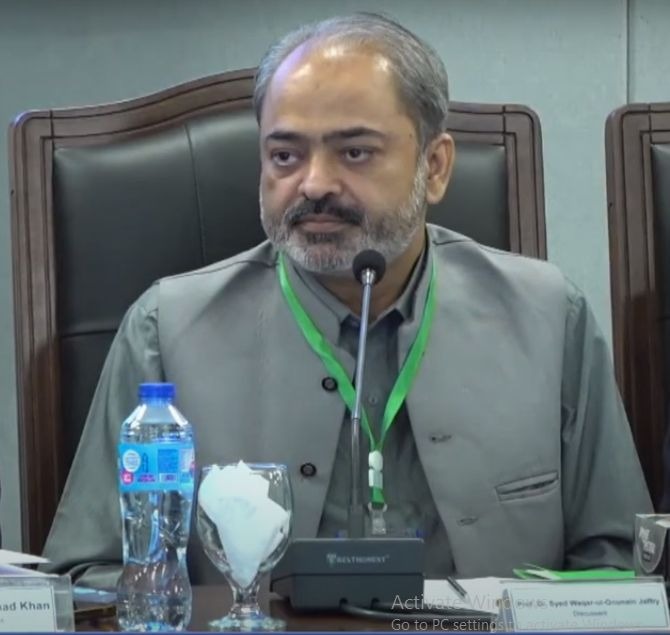
Dr. Waqar is the Director of Artificial Intelligence and Multidisciplinary (AIM) Resaerch Lab, Agent-based Computational Modelling Lab, National Centre of Artificial Intelligence, University of the Punjab, and Professor / Chairman of Department of Information Technology, University of The Punjab Lahore, Pakistan. He has completed his PhD from Vrije University, Amsterdam, the Netherlands in the field of Artificial Intelligence during 2007 - 2011. His PhD research focused on the Analysis and Validation of Models for Trust Dynamics. This research is applied in the EU funded project SOCIONICAL. His current research interests include Computational Modelling, Agent Based Systems, Social Simulations, Data Mining and Text Analytics.

I am a Software Architect - AI at 10Pearls, a leading digital transformation company that helps businesses accelerate innovation and deliver amazing customer experiences. I have a PhD in Computer Science from the University of Tubingen, Germany, where I conducted research on terrain detection using cameras mounted on flying and ground robots. With over 20 years of programming experience, I have developed and engineered software solutions for various domains, including web development, artificial intelligence, and robotics. I have also been teaching robotics as an Assistant Professor at The University of Lahore and FAST-NU, Lahore, Pakistan, where I established and supervised robotics labs and events. As a consultant, I have worked with several organizations, such as Ilsa Interactive, Engro Digital, Fayvo, and XiSys, to provide them with artificial intelligence and machine learning solutions. My specialties are C++, Python, AI, Machine Learning, Data Science and robotics.
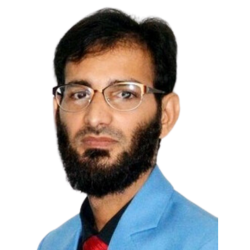
Dr. Syed Tanweer Shah Bukhari, a Assistant Professor, is a distinguished expert in Artificial Intelligence with a PhD from COMSATS University Islamabad. His research focuses on cognitive robotics and machine imagination, resulting in significant contributions to the field. With over a decade of experience, he has held key positions in academia and industry, including Senior Lecturer at the University of Central Punjab and roles in AI consulting and technology leadership. Dr. Bukhari’s work is showcased in prestigious journals and conferences, and he has received numerous awards, including recognition from IEEE. He is dedicated to knowledge sharing through workshops, talks, and panel discussions.
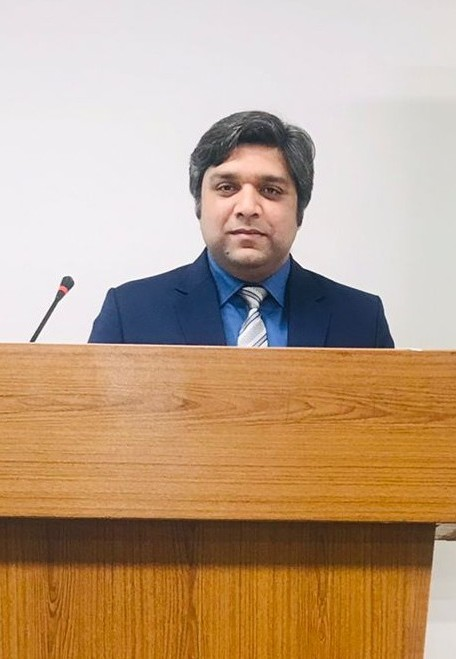
Engr. Dr. Raheel Muzzammel is an electrical engineer with expertise in power systems, machine learning, medical image analysis, and information security. He earned his BSc from UET Lahore and his MS and PhD from the University of Lahore. His research spans machine-learning-based power system protection, optical tomography, and data-driven engineering solutions. Dr. Raheel actively contributes to teaching, supervision, and collaborative projects, advancing innovation across academia and industry.
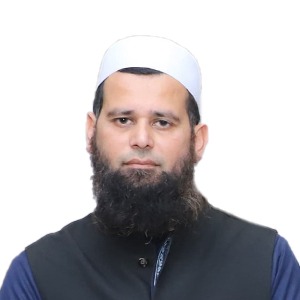
Accomplished academic professional and industry veteran with 11.5 years of industrial experience and a decade of teaching as a university lecturer. Expertise in cutting-edge research areas including Computer Networking, IoT Security, and Machine Learning. A dynamic educator passionate about merging theoretical knowledge with practical insights, fostering innovative thinking, and advancing academic excellence through impactful research and mentorship. Proven ability to inspire students, drive collaborative learning, and contribute to institutional growth in higher education
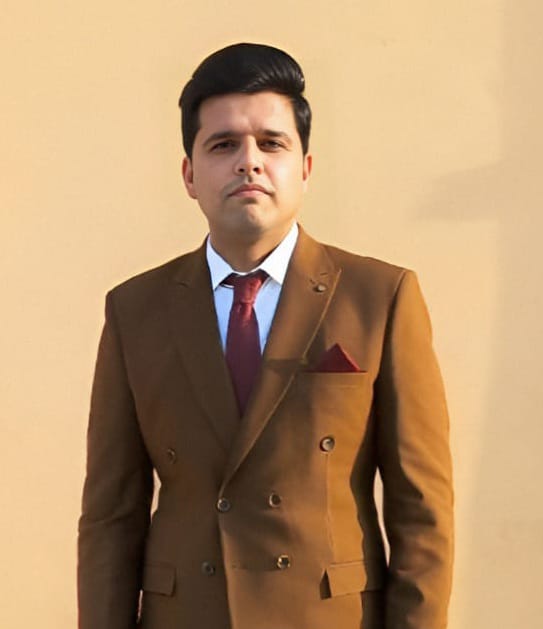
Zain Asghar is an academic and professional with a strong background in both teaching and industry. He holds an MS in Computer Science from the University of Central Punjab, Lahore, where he was honored as a Gold Medalist for his outstanding academic performance. With a blend of theoretical expertise and practical experience, he makes learning engaging and impactful. His teaching emphasizes creativity, critical thinking, and problem-solving, while his expertise in E-Learning demonstrates his adaptability to modern education. Dedicated to growth and innovation, Zain continues to make meaningful contributions to both academia and the evolving technology landscape.
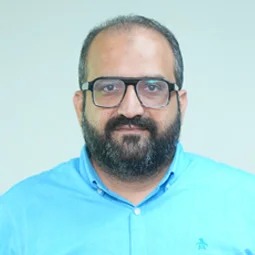
Waqas Ali is an accomplished Principal Lecturer and Technical Professional with over 15 years of experience in teaching, research, and industry. He holds an MS in Computer Science from Lahore University of Management Sciences (LUMS) and a BS in Computer Science from Punjab University College of Information Technology (PUCIT). During his master’s at LUMS, under Professor Dr. Shafay Shumail (Chair, NCEAC), he contributed to process improvement initiatives(CMMI) and worked on an international R&D project at KADE Lab supervised by Professor Dr. Asim Karim, securing a seed fund for an innovative product at GITEX Dubai. In academia, he has taught at the University of Lahore, Punjab University, University of Sargodha (Lahore Campus), and NCBA&E, delivering courses such as Object-Oriented Programming (C++), Web Development (ASP.NET MVC), Data Structures (C#), and Internet Programming (Java). Known for his engaging teaching style and curriculum design expertise, he is also a Microsoft Certified Trainer. Professionally, he has contributed to Software Development, IT GRC Consultancy, and Business Development at organizations including Zoniversal, Novexatech, BinYousaf, and Shaukat Khanum Memorial Cancer Hospital & Research Centre (SKMCH&RC). His roles have included Software Engineer, Backend Engineer, IT Trainer, IT GRC Consultant, Business Development Strategist, and Technical Consultant, focusing on client engagement, training design, and digital process enhancement. His research interests span Natural Language Processing (NLP), Machine Learning, Deep Learning, Computer Vision, Data Mining, Software Development Process Improvement (CMMI), and Generative & Agentic AI. He co-developed “Talkative Buddy”, an AI-driven conversational platform with real-time voice recognition and domain-customized dialogue systems, deployed at LUMS University and tested in government and private hospitals in Pakistan. Additionally, Waqas Ali has been affiliated with IEEE for over a decade, serving as Vice Chairman of IEEE Young Professionals, Lahore Section, where he organized and conducted multiple technical trainings and workshops to promote professional development in the engineering community.
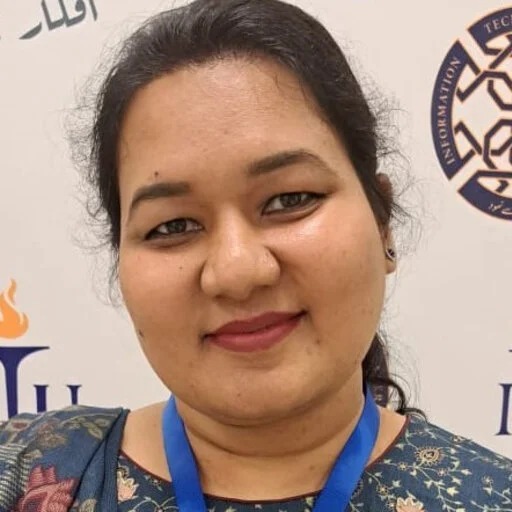
Asma Basharat is a researcher and academic at Forman Christian College, Lahore, specializing in cybersecurity, machine learning, and smart-healthcare/IoT-based systems. Over her career she has authored 14 publications spanning topics such as intrusion detection in healthcare networks, security challenges in IoT and smart agriculture, medical image processing (e.g. tumor detection in MRI/mammograms), and data-handling in classification problems. Her work demonstrates an interdisciplinary focus — combining computer networks security, malware detection, machine learning, and applications in health and smart infrastructure — positioning her at the interface of cybersecurity and applied AI for societal benefit.
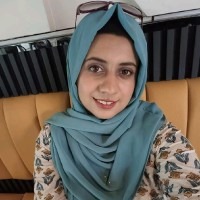
Hifza Sohail is an experienced project management professional currently serving as a Project Manager at Axelliant, having previously led projects at Ashtex Solutions for three years, where she developed strong expertise in agile methodologies, project planning, team coordination, and risk management. Alongside her core project management roles, she has nearly a decade of part-time experience as an O-Level tutor and has worked as a Technical Content Engineer at Educative, where she strengthened her skills in technical writing and communication. Her background includes active involvement in tech-related student initiatives such as SOFTEC, and she holds a Bachelor’s degree in Computer Science from FAST–NUCES. She has also completed multiple professional certifications, particularly in Make (Integromat) automation, and has volunteered with WWF, reflecting a well-rounded profile combining leadership, technical expertise, and community engagement.

Safa Ishtiaq, known as Safa preneurial on Instagram, is an entrepreneur and digital content creator based in Lahore, serving as the Head of Marketing & PR at Alumination.official and the founder of Casperian.pk. Through her Instagram presence (@safaspreneurial), she shares creative content, promotes entrepreneurial ventures, and engages in marketing and branding activities, combining her expertise in business development with social media influence.
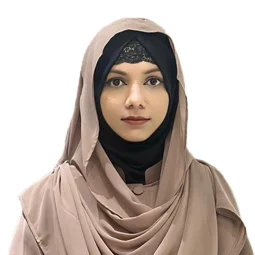
Syeda Tayyaba Bukhari joined University of Central Punjab as a Senior Lecturer in August, 2025. She served LUMS as a Teaching Fellow. She was associated with the National University of Computer and Emerging Sciences (FAST-NUCES) as a Lecturer. She was an Instructor at Systems Limited in their ITM Program Batch 1 and Batch 2. She taught Blockchain under Kamyab Jawan Program by NAVTTC. She was also associated with ITU Lahore as a Graduate Student Fellow. She was a Faculty Member with the Faculty of Computer Science, University of South Asia, Cantt, Lahore. She has also been involved in departmental service work (Member of Exam Committee at FAST and USA, Part of NCEAC Team at FAST and LUMS, Member of DRC Committee at FAST, Co-Advisor of Stacks Students Society at FAST etc). Her research interests include Blockchain and related fields.

Muhammad Hamza Ihtisham, a seasoned professional in the ever-evolving world of telecommunications. Armed with a Master of Science in Industrial Engineering Management and a Bachelor of Science in Electrical Engineering, with a specialization in Telecommunications, I am the embodiment of technical finesse and strategic brilliance. Within my role as a Network Supervision Specialist at PMCL-JAZZ, I have consistently maintained peak network performance and uptime. Among my feats, I have championed transformative projects such as the GPS Batteries Project and the revolutionary JAZZ NOC Live Mobile Application. Beyond the projects, I wield data as a strategic asset, using Power BI and Tableau dashboards to drive informed decision-making. But what truly sets me apart is my knack for leadership. As the Chair of the IEEE Young Professional Affinity Group, I am deeply committed to driving industry-wide change. My contributions have been recognized with prestigious awards like the IEEE MGA YP Achievement Award and the IEEE IAS Young Member Service Award.
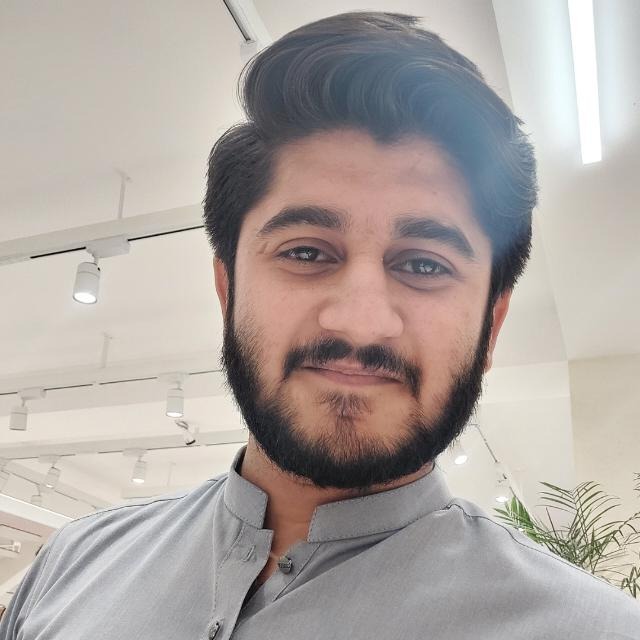
Umer Draz is a Research Engineer at the Integrated Engineering Centre of Excellence (IECE), The University of Lahore, where he contributes to research-driven engineering projects and innovative technological solutions. With a strong academic and technical background, he focuses on applying advanced engineering principles to practical challenges, supporting the development of high-quality research outputs and fostering collaboration within multidisciplinary teams.


